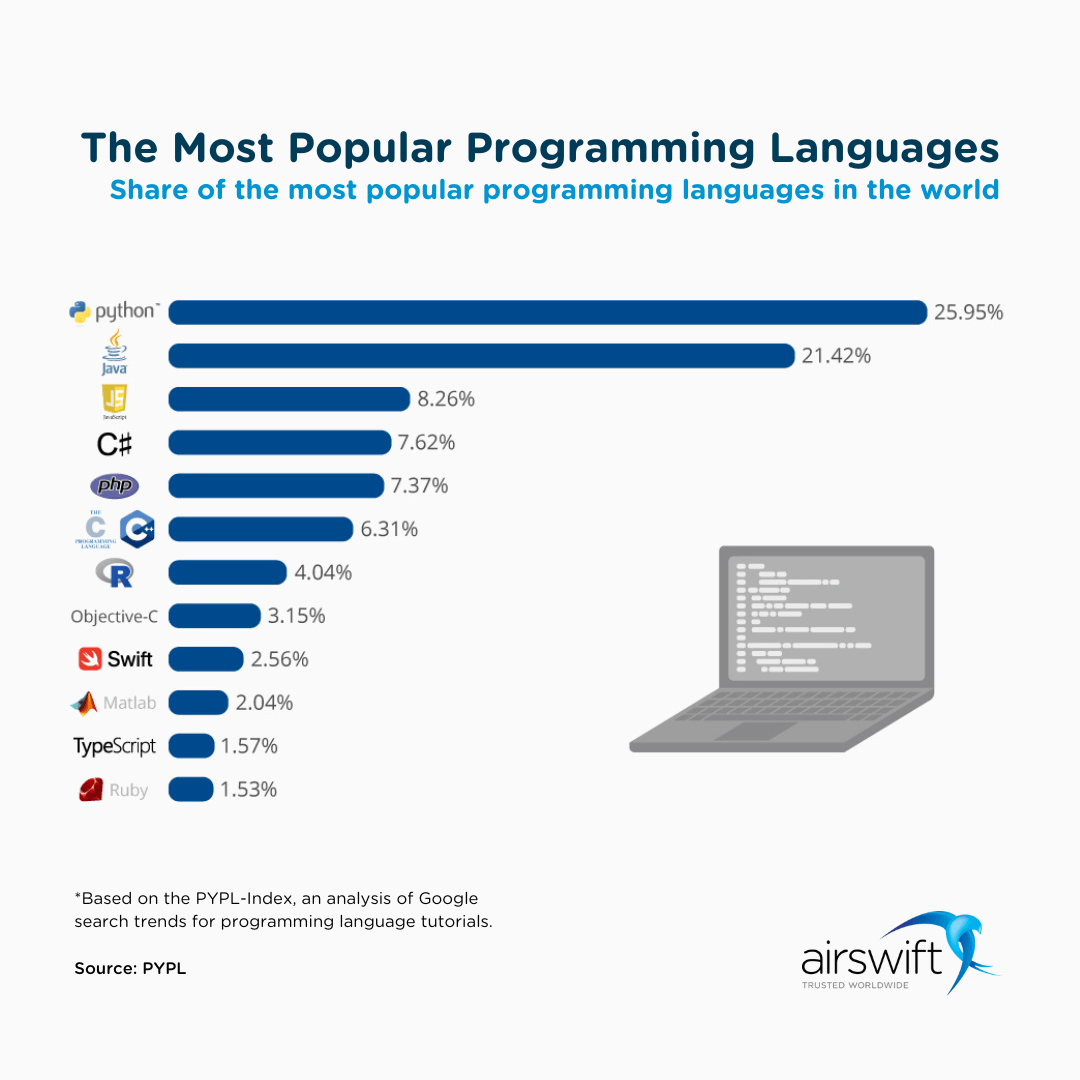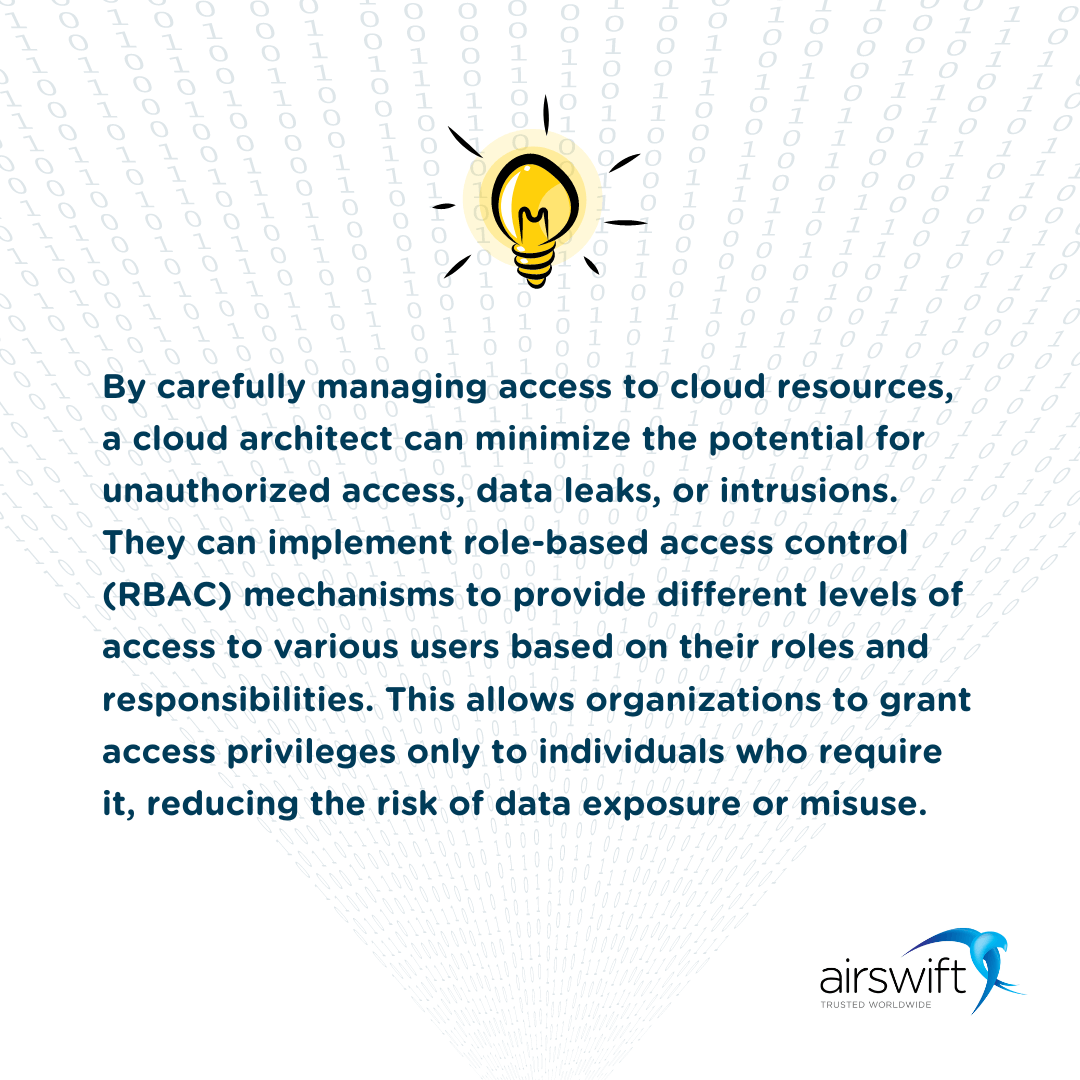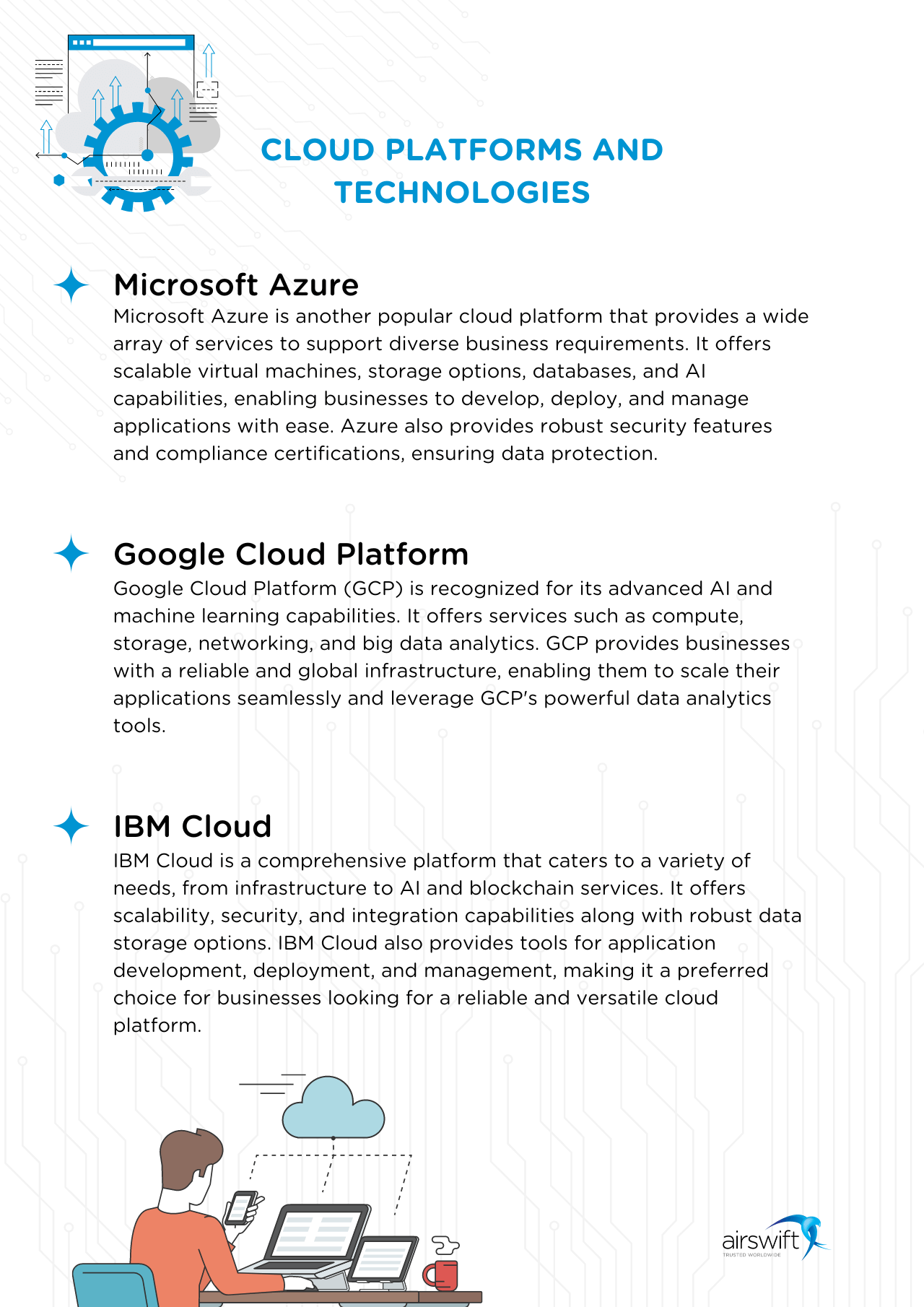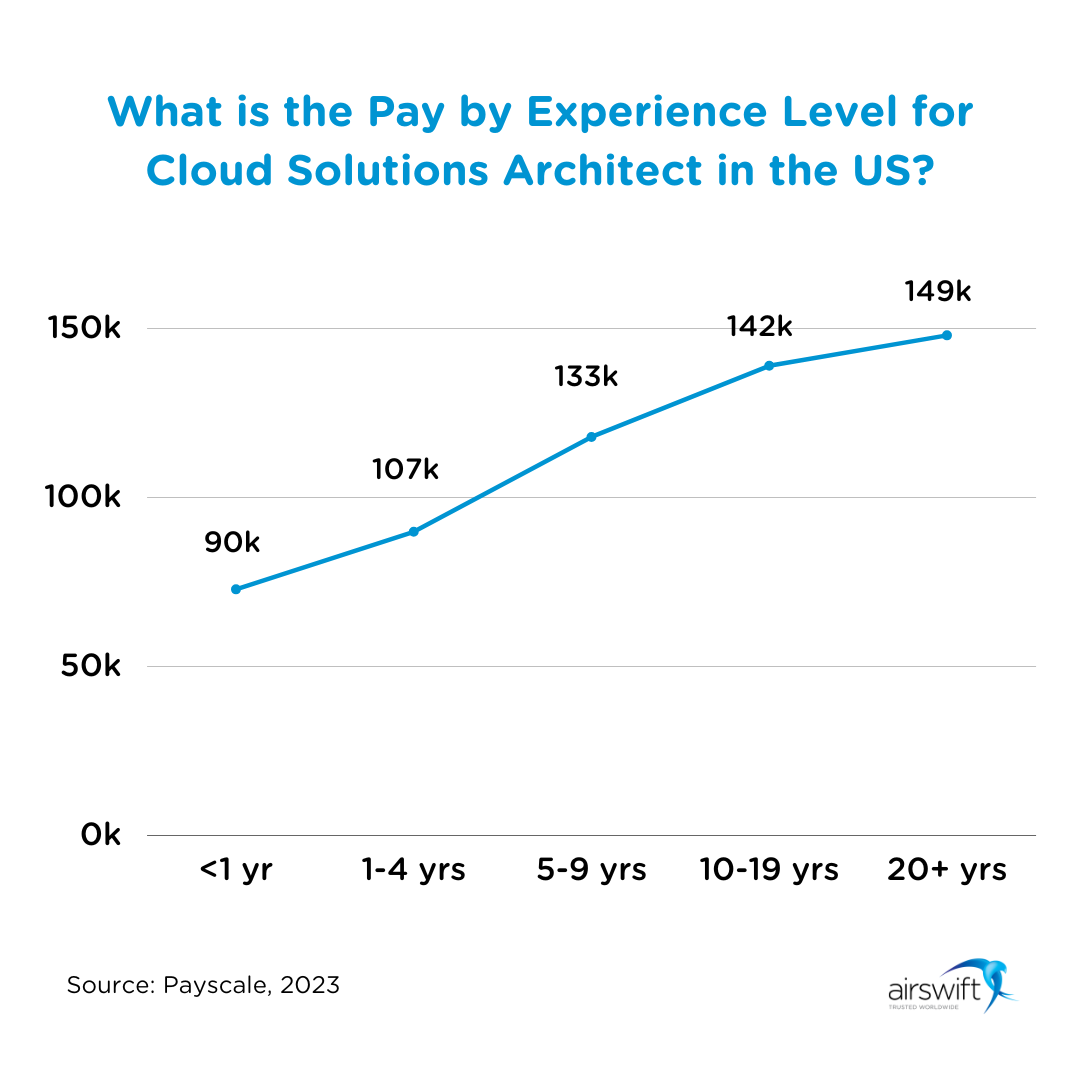
By
Raphael Santos
September 28, 2023
Updated
October 25, 2024
Cloud architects need to have a deep understanding of their company's business and more for 2024.
To excel in the field of cloud architecture in 2024, professionals need to possess a diverse set of skills that combine technical knowledge with business acumen.
From understanding different cloud platforms to mastering programming languages and having excellent communication skills, there are several key areas that aspiring cloud architects should focus on.
This article will delve into the essential skill set needed to thrive in the role of a cloud architect and provide insights on how to acquire and develop these skills.
Undoubtedly, possessing that diverse range of skills will significantly increase your chances of securing your dream job.
Must-have technical skills to master
On the technical side, proficiency in various operating systems is crucial for designing and implementing cloud infrastructure. Knowledge of programming languages is also essential to automate processes and create custom solutions.
When we talk about non-technical skills, we need to highlight networking skills, as this professional need to design and implement secure and reliable network connections within cloud environments.
Programming languages
Programming languages are essential skills for cloud architects, enabling them to create and manage cloud-based solutions effectively. Among the commonly used programming languages for cloud architects are C#, Java, Ruby, Python, and JavaScript. They can create prototypes, test their ideas, and iterate quickly to deliver real value to their businesses.

By having knowledge of programming languages, cloud architects can also stay up-to-date with the latest technology advancements in the cloud computing industry. This ensures that they are well-equipped to evaluate and adopt new tools, frameworks, and methodologies that can enhance their cloud infrastructure and services.
For instance, a cloud architect proficient in Python can leverage its extensive library ecosystem for automation and orchestration tasks. Similarly, a cloud architect skilled in Ruby can utilise its simplicity and readability to efficiently manage cloud environments. With expertise in C#, a cloud architect can leverage the Microsoft Azure ecosystem to develop cloud applications seamlessly.
Access management
Access management plays a crucial role in cloud architecture and is one of the key responsibilities of a cloud architect. It involves controlling and managing access to cloud resources, ensuring that only authorized individuals or systems have the appropriate permissions to access and use those resources.
In the context of cloud architecture, access management includes implementing and enforcing authentication, authorisation, and auditing mechanisms. This helps to ensure the security and integrity of cloud resources by preventing unauthorized access, protecting sensitive data, and mitigating the risk of potential security breaches.

Virtual machines and containers
Virtual machines (VMs) and containers are two important concepts in cloud architecture that enable efficient and flexible deployment and management of software applications.
- Virtualization technology allows for the creation of multiple virtual machines on a single physical server. Each VM runs its own operating system and applications, providing isolation and security. This enables organizations to make the most of their hardware resources by consolidating multiple servers into a single physical server. Virtual machines are highly customizable and can be scaled up or down as needed, making them ideal for running complex applications that require dedicated resources.
On the other hand:
- Containers provide a lightweight and portable way to package and run software. Containers share the operating system kernel of the host machine, allowing for faster startup times and more efficient resource utilization compared to virtual machines. Containers are highly scalable and can be easily deployed and managed in cloud environments. They offer a consistent runtime environment across different infrastructure, making application development and deployment more streamlined and efficient.
Both have their own benefits and use cases in cloud environments. Virtual machines are well-suited for running legacy applications that require compatibility with specific operating systems or hardware configurations. They provide strong isolation between applications and can support different operating systems within the same infrastructure.
Containers, on the other hand, are ideal for modern microservices architectures, enabling rapid application deployment, scalability, and flexibility. They are widely used for DevOps practices and continuous integration/continuous deployment (CI/CD) workflows.
Networking & security concepts

Networking and security concepts are vital for cloud architects to have a solid understanding of to ensure the security and stability of cloud environments. These concepts include:
- TCP/IP
TCP/IP (Transmission Control Protocol/Internet Protocol) is the foundation of the Internet. It provides the rules for transmitting data packets between devices in a network. Understanding TCP/IP is crucial for cloud architects to design and troubleshoot network connectivity in cloud environments.
- IP addresses
IP addresses are unique identifiers assigned to devices in a network. Cloud architects need to comprehend how IP addresses are assigned, managed, and used to ensure proper communication and routing within cloud networks.
- HTTP
HTTP (Hypertext Transfer Protocol) is the protocol used for transmitting data over the Internet. Cloud architects must understand how HTTP works to design and optimize cloud-based applications and services.
- DNS
DNS (Domain Name System) is responsible for translating user-friendly domain names into IP addresses. An understanding of DNS is essential for cloud architects to configure and troubleshoot domain name resolution in cloud environments.
Additionally, cloud architects should possess knowledge of various security components, such as firewalls, which are network security devices that monitor and control incoming and outgoing network traffic. Understanding how firewalls work and how to configure them is crucial for securing cloud networks.
Database structure & administration
A cloud architect needs to have a deep understanding of database structure to design efficient and scalable database solutions in the cloud. They must be familiar with concepts such as tables, fields, and relationships, as well as database normalization and indexing techniques. This knowledge allows them to create well-optimized database structures that can handle large volumes of data and deliver high-performance.
In addition to structure, database administration is another essential skill for cloud architects. They need to have the expertise to ensure the smooth operation of databases in cloud environments. This includes tasks such as database installation, configuration, backup and recovery, performance monitoring and tuning, and security management.
Understanding database administration enables cloud architects to efficiently manage and maintain databases, ensuring their availability, reliability, and security.
Cloud platforms and technologies
Cloud platforms and technologies have revolutionized the way businesses operate, offering scalable, reliable, and cost-effective solutions for various needs.
Amazon Web Services (AWS) is a leading cloud platform known for its extensive range of services, including compute, storage, database, networking, and analytics. The other platforms that follow behind are:
- Microsoft Azure.
- Google Cloud Platform.
- and IBM Cloud.

One significant trend in cloud platforms is the adoption of serverless architecture, such as AWS Lambda. Serverless architecture allows businesses to focus on coding and innovation without having to worry about infrastructure management. It offers cost-effectiveness, as businesses only pay for the actual usage of their applications or functions.
Choosing the right cloud platform is crucial for businesses, as it directly impacts scalability, availability, and overall cost-effectiveness.
Soft skills for cloud architects to master

In addition to technical knowledge and expertise, soft skills play a crucial role in the success of a cloud architect. These abilities enable them to effectively communicate, collaborate, lead, and drive change within an organization.
- Effective communication skills are essential for a cloud architect. They must be able to articulate complex technical concepts to both technical and non-technical stakeholders. This enables clear understanding of cloud strategies and requirements, and ensures alignment between technical teams and business objectives.
- Collaboration skills are also vital for a cloud architect. They need to work closely with diverse teams, such as developers, business analysts, and stakeholders, to develop and implement cloud solutions. Collaboration fosters innovation, enhances problem-solving, and promotes a cohesive approach towards achieving organizational goals.
- Leadership skills are important for a cloud architect to guide and inspire teams. They should be able to provide direction, motivate others, and make informed decisions. Effective leaders are able to create a positive and productive work environment, enhancing the success of cloud projects.
- Change management is another soft skill necessary for a cloud architect. They should be able to drive change within an organization by effectively communicating the benefits of cloud adoption and helping teams adapt to new processes and technologies.
Beyond these soft skills, knowledge in finance and legal experience can also be valuable for a cloud architect. Understanding financial aspects, such as cost optimization, budgeting, and return on investment, as well as legal considerations, can greatly contribute to the success of cloud projects.
What is the experience level pay for US cloud architects?
The average salary range for a cloud architect position can vary depending on factors such as location, industry, and company size. However, according to industry reports and job market data, the average salary range for cloud architects in the United States is $132,150 in 2023.
Take a look at our chart below for salary information based on experience level.

Cloud architect in AI
Cloud architects in artificial intelligence are key players in developing and implementing cloud-based AI solutions. They play a crucial role in designing and implementing the infrastructure and frameworks required to support AI initiatives in the cloud.
A cloud architect possesses technical expertise not only in cloud platforms and technologies but also in AI concepts and algorithms. They understand the unique requirements of AI applications and leverage their knowledge to create scalable and secure cloud environments that can effectively run AI workloads.
Their technical skills enable cloud architects in AI to design and deploy distributed computing systems, utilize machine learning frameworks, and integrate AI services and tools into the cloud architecture. They also ensure that the infrastructure is optimized to handle the high computational and storage demands of AI applications.
Market trends
In addition to the inclusion of AI in increasingly common cloud architectures, another notable trend in cloud architecture is the increasing use of multi-cloud environments. Rather than relying on a single cloud provider, organizations are now leveraging multiple cloud platforms to take advantage of different services and capabilities.
This trend requires cloud architects to have knowledge and experience across various cloud providers and the ability to design and manage complex architectures that span multiple clouds.
Another trend that we can highlight is the adoption of serverless computing, which allows developers to focus on writing code without worrying about infrastructure management. Cloud architects need to understand how to design serverless architectures and leverage services like AWS Lambda or Google Cloud Functions effectively. This trend enables organizations to build scalable and cost-efficient applications.
Practical examples of companies researching new technologies in cloud architecture include Microsoft, which is investing heavily in Azure Arc capabilities to enable customers to deploy and manage resources across multiple clouds. Google is also continuously innovating in the cloud space, focusing on hybrid cloud solutions and providing AI-based services through their Google Cloud Platform.
Growing as individual contributors (ICs) or managers?
As cloud architects develop their careers, they have the option of following different growth paths as individual contributors (ICs) or managers.
For those who choose the IC path, they can become expert craftsmen in cloud architecture, honing their technical knowledge and skills in designing and implementing cloud solutions.
On the other hand, those who transition into management roles take on responsibilities beyond technical expertise. These individuals are responsible for leading teams of cloud architects, setting and executing cloud strategies, and ensuring successful implementation of cloud solutions. Additionally, managers need to possess excellent communication, strategic thinking, and people management skills to drive projects forward and support career growth for their team members.
Ultimately, the choice between the IC and management paths depends on an individual's strengths, goals, and aspirations. Both paths offer opportunities for growth and a successful career in cloud architecture, but they require different skill sets and responsibilities. Whether choosing to become an expert IC or a strategic manager, continuous learning and development are crucial for remaining at the forefront of cloud technologies and driving organizational success.
We can help you with the perfect match
The tech industry is in dire need of talent. Employers are on a chase for skilled individuals who possess the perfect set of skills. It's absolutely crucial to find a company that not only matches your professional aspirations, but also fuels your growth, whether you're gunning for a top executive position or want to make your legacy as an individual contributor.
We at Airswift are your right partner in making that tech job dream come true. Our worldwide network of over 60+ offices worldwide, 9,000+ contractors, 1000+ employees and cutting-edge technologies ensures we can seamlessly connect you with the perfect company. Seize these tech opportunities that are waiting for you now.


